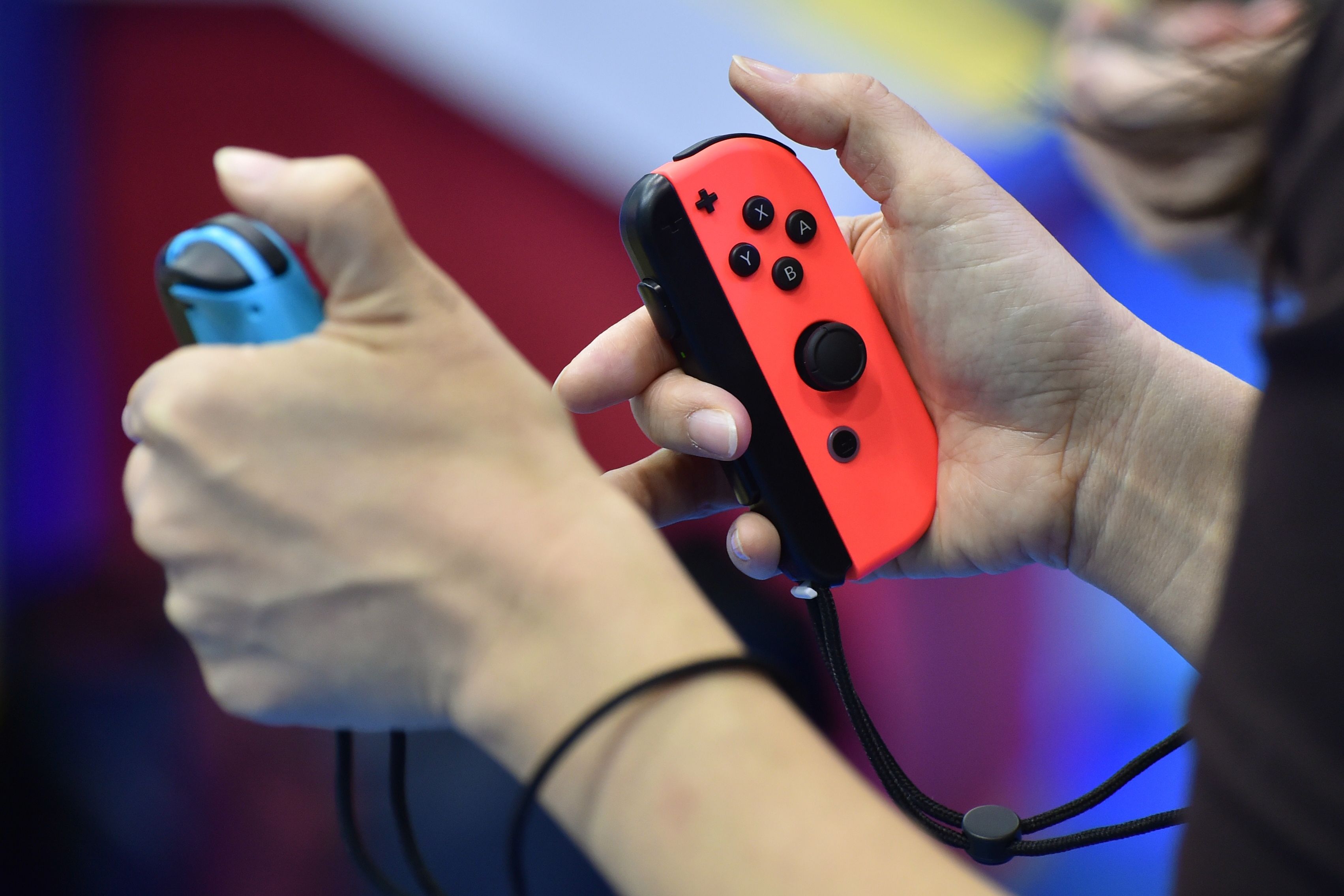The Marxist case for the Nintendo Switch
How Nintendo succeeded by escaping the dialectic of capitalism


Only a year ago, Nintendo was in the midst of a severe corporate crisis. Its flagship console, the Wii U, had been comprehensively wrecked by its competitors, Sony's Playstation 4 and Microsoft's Xbox One. Hemorrhaging money, the company was considering moving out of the hardware market altogether, and focusing on developing games for consoles and mobile devices.
But now, the tide has turned. As Navneet Alang writes, its new console, the Nintendo Switch, has been a breakout success. It has sold over 10 million units worldwide just in the last 10 months — becoming the fastest-selling console in U.S. history, and already beating the Wii U's total sales in Japan.
It's remarkable both as a come-from-behind victory, and also as a way a corporation succeeded by breaking out of what Marxists call the capitalist dialectic — that is, by ignoring the received wisdom of the market and the ideology of capitalism itself.
Subscribe to The Week
Escape your echo chamber. Get the facts behind the news, plus analysis from multiple perspectives.

Sign up for The Week's Free Newsletters
From our morning news briefing to a weekly Good News Newsletter, get the best of The Week delivered directly to your inbox.
From our morning news briefing to a weekly Good News Newsletter, get the best of The Week delivered directly to your inbox.
First, let me describe the Switch, because it's a pretty strange device. (I picked one up myself for Christmas out of curiosity, and have quite enjoyed it thus far.) It's a portable-console hybrid, with a tablet that can be used as a handhold or plugged into a dock and played like a normal console. The tablet has two controllers that can be attached to either side of the tablet, or detached and used remotely, or attached to a separate controller platform.
The tablet is not that big, and the video processor is not that powerful, and the battery life is only okay, with about three hours under heavy load. But its specs reflect inherent tradeoffs between size, portability, and performance, and Nintendo hit a pretty solid sweet spot between the three.
The first interesting aspect of this design is how similar it is to the failed Wii U. That console has a controller with a tablet functionality, and one of its main selling points is that if someone wanted to use the TV you could just move your whole game to the tablet — just like you can with the Switch.
Marxists often reference the "capitalist dialectic," which as Leon Trotsky once pointed out is merely a pretentious synonym for "the logic of evolution." To abuse Marx somewhat, this can be seen in the ordinary marketplace: Businesses sell products, and the things they sell are recursively influenced by what sells and what doesn't sell. The Wii U's flop convinced many that the tablet idea was a total non-starter, and that what Nintendo needed to do was something similar to what Sony and Microsoft were doing. The Almighty Market Had Spoken.
But businesses are still run by human beings, and contrary to the strict determinism that some Marxists espouse, they can attempt to jump out of whatever narrow dialectical confines an industry might be caught in; i.e. they can try to sell something that customers don't know they want yet.
The Switch was quite a gamble for Nintendo. Businesses are always hesitant to take a risk on developing a new customer base, and almost none of them will make the same gamble again after it failed once. But that's just what Nintendo did, trusting their rational analysis of their customer base rather than blindly trusting market outcomes — and it paid off.
The second interesting aspect of the Switch is how it treats games. As I have written before, the logic of the market is corrosive to the creation of works of art. Art is resistant to being commoditized, and the more it is treated like a commodity, the harder it is to achieve any artistic success. For example, Sony and Microsoft have long been competing over measurable metrics like cutting-edge graphics and computing horsepower, and trying to leverage their consoles into being general entertainment systems. The results are bloated user interfaces and games that are sometimes good but always extremely resource-intensive and require frequent large patches to be downloaded.
Other game developers have straight up ruined their titles by building them entirely around extracting small payments (or "microtransactions") or cramming in manipulative "loot box" gambling mechanics. The more a game developer allows capitalist thinking and ideology to penetrate its development process, the more it will tend to think of its customers as brainless vessels to be mercilessly pillaged for cash.
Valve has seemingly stopped developing games altogether in favor of running Steam, the major sales platform for PC games. Steam has been plagued with quality control issues for years directly caused by the commoditization problem, with tiny "developers" attempting to make a quick buck by selling dozens of "asset flip" games made by quickly copy-pasting pre-made items from the Unity engine.
On the Switch, by contrast, being able to play its games quickly and efficiently is the overwhelming priority. Its games are smaller and more polished: After waking up from sleep mode, you can be playing inside of five seconds (as compared to minutes if not hours for the PS4 or Xbox). Its flagship titles of Mario Odyssey and Zelda: Breath of the Wild are artistic creations designed to be enjoyed, not roads into customers' wallets. Jim Sterling reports that some smaller developers have even moved from Steam to the Switch, because the sea of dreck on the former is making it almost impossible for new developers with real games to even be noticed on there.
Finally, it's noteworthy how Nintendo survived the down years when the Wii U was failing. It had accumulated a substantial reserve to cover years of losses — as compared to the usual U.S. corporate behavior of kicking out all profits to shareholders as fast as possible. More strikingly, when revenue failed to meet expectations in 2013, company president Satoru Iwata took a voluntary pay cut of 50 percent for five months, while other executives took a 20-30 percent cut. That is poles apart from traditional American executive behavior, which is to push losses onto workers and pensions while looting as much cash out of the company while the getting is good. If Carl Icahn had been in charge of Nintendo for the last few years it would have already been stripped for parts and sold for a quick buck to Wall Street goons.
Of course, one should not go overboard with praise here. Nintendo is still just a business, after all. But it is worth noting that sometimes human reason, planning, and art for art's sake can be successful business practices — not just sociopathic self-interest and worship of whatever happens in the market.
A free daily email with the biggest news stories of the day – and the best features from TheWeek.com
Ryan Cooper is a national correspondent at TheWeek.com. His work has appeared in the Washington Monthly, The New Republic, and the Washington Post.
-
 The pros and cons of noncompete agreements
The pros and cons of noncompete agreementsThe Explainer The FTC wants to ban companies from binding their employees with noncompete agreements. Who would this benefit, and who would it hurt?
-
 What experts are saying about the economy's surprise contraction
What experts are saying about the economy's surprise contractionThe Explainer The sharpest opinions on the debate from around the web
-
 The death of cities was greatly exaggerated
The death of cities was greatly exaggeratedThe Explainer Why the pandemic predictions about urban flight were wrong
-
 The housing crisis is here
The housing crisis is hereThe Explainer As the pandemic takes its toll, renters face eviction even as buyers are bidding higher
-
 How to be an ally to marginalized coworkers
How to be an ally to marginalized coworkersThe Explainer Show up for your colleagues by showing that you see them and their struggles
-
 What the stock market knows
What the stock market knowsThe Explainer Publicly traded companies are going to wallop small businesses
-
 Can the government save small businesses?
Can the government save small businesses?The Explainer Many are fighting for a fair share of the coronavirus rescue package
-
 How the oil crash could turn into a much bigger economic shock
How the oil crash could turn into a much bigger economic shockThe Explainer This could be a huge problem for the entire economy



